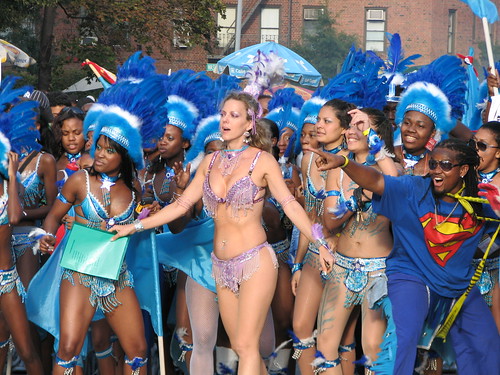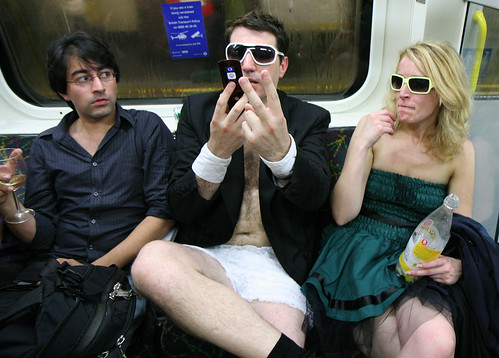
I don’t believe in good language and bad language. I also don’t believe in good people and bad people. I’m not interested in broad labels and I try not to judge things or people based on them, but on factual results.
Personally, I don’t have any problem with words like ‘fuck’, ‘shit’ and so on (as you can tell). If they serve a purpose, I use them when I write articles, deliver speeches or make conversation. I have internalized all kinds of language, from the scientific to the trivial.
Well, not all persons are like that, and not all persons appreciate my language. For instance, while I get a lot of email from people who say they appreciate my straightforward writing style, I also get email from people who tell me they find my language offensive.
And I have learned to embrace both kinds of reactions. It took me a while, but I’ve realized that the first category of people cannot exist without the second one. I wouldn’t have my fans if I didn’t have my critics, because they all respond to the same personal style but in different ways.
Victims of Labels
This being said, I do find the arguments of individuals who reject the use of strong language amusing. A typical conversation for me with such a person (I’ll call them Bob) goes kind of like this:
Bob: “I don’t like your profane language. It’s unprofessional.”
Me: “Unprofessional. What does that mean specifically?”
Bob: “You know…. Unprofessional! “
Me: “No, I don’t know. It’s a label, but what does it mean?”
Bob: “I suppose it means… incompetence.”
Me: “So you’re saying that my use of profane language is an accurate estimator of how competent I am in my field?”
Bob. “Well, no I guess not. But that kind of language shows disrespect.”
Me: “How?”
Bob: “It just does.”
Me: “I don’t buy that assumption. How precisely is my strong language an indicator of disrespect?”
Bob: “That’s how people see it.”
Me: “What people?”
Bob: “People.”
Me: “You mean ALL people?”
Bob: “No. Yes. I’m not sure.”
This dialogue could go on forever, but Bob eventually finds it nauseating and gives up. Comedy aside, I think you can tell where I’m going. My point is this:
The use of strong language doesn’t mean shit.
Those interpretations we may give to the use of strong language are damn near arbitrary. We just believe they are correct because they’re spinning in our head like a broken disc.
Today, we have top professionals who use the word ‘fuck’ in almost every sentence and amateurs who try to appear competent by the use of ‘proper language’.
Words as Expression
There’s an episode of the TV show Bullshit (yes, that’s the name of the show) where Penn & Teller, the hosts of the show, debunk profanity. You might want to check it out.
I think Penn and Teller are aware of one key trait of language: its ability to convey meaning. Language is a way to express ideas, facts, emotions and ultimately, ourselves.
However, in order for language to do so, we must be willing to use its full range, even if some persons may not like it. Censoring ourselves for the sake of etiquette impairs personal expression. Do that often enough and you have no voice, and no impact.
Personally, I find the whole distinction between good and bad language juvenile and farfetched. But these are only two labels. I’ll tell you one practical lesson I’ve learned though, as a coach and as a person.
You’ll get a lot more out of being authentic in your communication than by trying to follow strict etiquette.
Will you piss some people off? Absolutely. Does it make a difference? No, not really. The only real way to never piss people off is to be invisible. I’ve been there, and trust me: it’s not very enjoyable.
The best way to go is to discover your inner voice, make it heard in a genuine way and make shit happen.
Image courtesy of CarbonNYC


